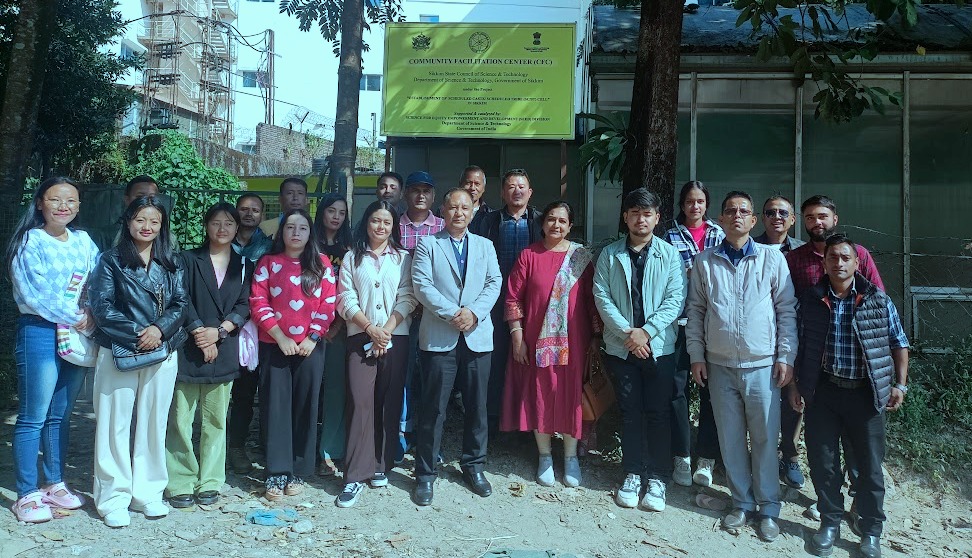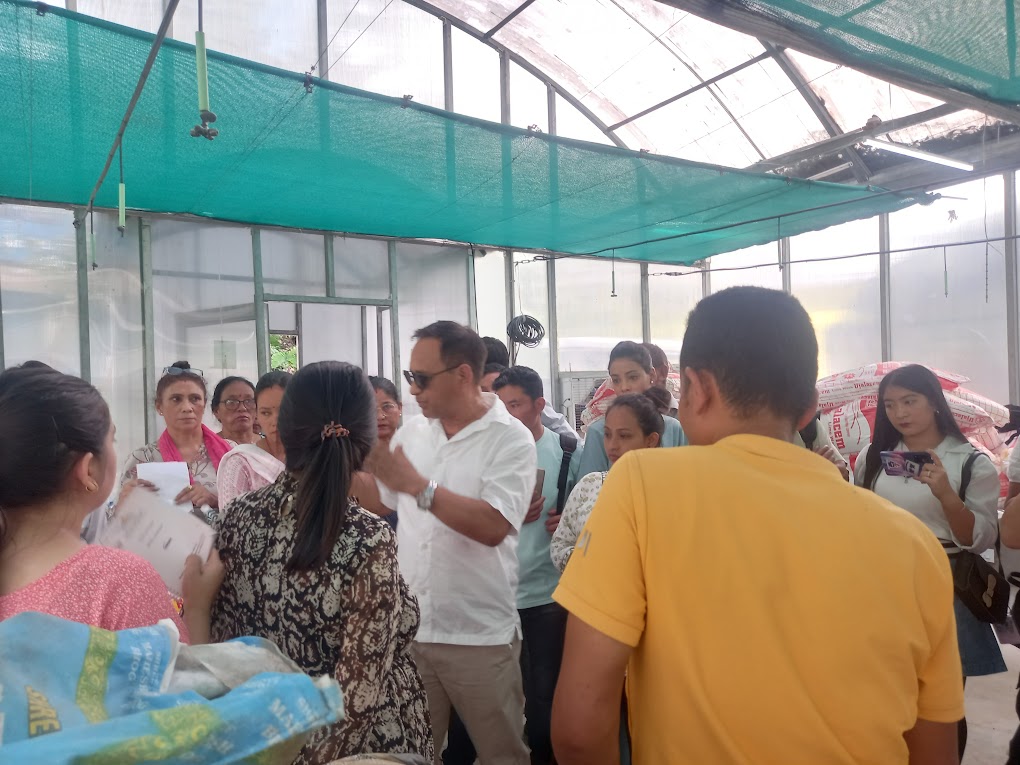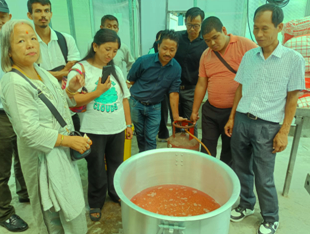NEWS AND FEATURES
ST Cell - SIKKIM

Introduction:
Establishment of Scheduled Caste (SC)/Scheduled Tribal (ST) cell in State Science & Technology Council of Sikkim state
Principal Investigator: Shri. D.T Bhutia, Principal Director, Science & Technology Department, Government of Sikkim.
Object of the project:
Phase-I
- To assess the livelihood system for sustainable livelihood planning through science, know-how, and practices
- To capture traditional & indigenous knowledge and upgrade the skills, building on local innovation & local knowledge systems
- Establishment of a database of promising technologies that can be taken up for widespread adaptation
- Mapping of the above data and resources on a Spatial Domain
- To act as Coordination Cell to promote adaptation of appropriate and relevant technologies for socio economic development of target population
- Promotion, replication and scaling up of successful technologies leading to socio economic empowerment and capacity building
- Development of programs and projects for strengthening human capacities, Institutional capacities and technology deployment.
Phase-II
Recent Training under the SC/ST Cell, Sikkim
1. Cold-Tolerant Efficient Hydrologic Bacterial Formulation with Bio-fertilizer
Date: August 24–30, 2024
Venue: ST Cell Office, Marchak
Participants: 50
Objectives
- Enhancing agricultural efficiency with bacterial formulations.
- Promoting sustainable farming practices using bio-fertilizers.
- Providing hands-on skill development in bacterial formulation techniques.
- Empowering rural SC/ST communities in Sikkim.
Participants
| Cluster | District | Team Leader | Participants |
|---|---|---|---|
| Luing | Gangtok | Dhanraj Sharma | Mohan Kr. Pandey, C.L. Chettri, Tulsi Poudel, others |
| Kabi | Mangan | Choden Lepcha | Songkit, Chungkit, Passangkit Lepcha, etc. |
| Rongali | Pakyong | Anju Bhusal | Sashi Kala, Manisa, Sancha Maya Subba, etc. |
| Hee-Gyathang | Mangan | Leedong Lepcha | Panchen, Lakchung, Sherap Lepcha, etc. |
| Yakthen | Pakyong | Pushpa Pradhan | Mon Kri, Sonika, Jai Gurung, Pema Sherpa, etc. |
Outcomes
- Hands-on training in hydrologic bacterial formulation.
- Awareness of bio-fertilizer benefits in cold regions.
- Improved soil management techniques.
2. Cane and Bamboo Handicrafts Training
Date: May 24 – June 24, 2024
Venue: CFC Cane and Bamboo Training Centre, Lingdong, Dzongu
Objectives
- Skill-based Science & Technology intervention for tribal youth.
- Provide job opportunities and promote traditional handicrafts.
- Preserve and modernize cane and bamboo craftsmanship.
Beneficiaries
| Name | Address | Contact |
|---|---|---|
| Jorden Lepcha | Lingdong | 7063808004 |
| Sangaydorjee Lepcha | U Barfok | 8145715703 |
| Shakkit Lepcha | L Lingdong | 9735988332 |
| Songmit Lepcha | U Barfok | 9679884947 |
| Naycho Lepcha | L Lingdong | 9800215041 |
| Norbu Tamang | Lingdong | 7063672202 |
| Rinzing Ongmu Lepcha | L Lingdong | 6009410434 |
| Lapkit Lepcha | Barfok | 6009123761 |
| Pema Lhamu Bhutia | L Lingdong | 8250872355 |
| Tashi Tenzing Lepcha | Barfok | 9593570555 |
Outcomes
- 4 trainees launched their own businesses.
- 1 participant secured a government job at Directorate of Handicraft & Handloom.
3. Biofertilizer and PUSA Decomposer Training
Date: August 16–22, 2024
Venue: ST Cell
Objectives
- Promote sustainable agriculture and organic farming.
- Introduce bio-fertilizer production and application.
Clusters Covered
- Kabi (Mangan)
- Bashilakha (Pakyong)
- Nimthang (Gangtok)
- West Pendam (Pakyong)
- Yakthen (Pakyong)
- Sadam Suntalay (Namchi)
- Makha (Gangtok)
Outcomes
- Self-employment opportunities created.
- Environmental sustainability encouraged.
4. Production of Spawn & Shiitake Mushroom
Date: August 3–9, 2024
Venue: CFC Marchak, East Sikkim
Objectives
- Promote mushroom cultivation and spawn production.
- Empower SHGs and rural entrepreneurs.
Clusters Involved
- Sumbuk (Namchi)
- Rumtek (Gangtok)
- Bashilakha (Pakyong)
- Nimthang (Gangtok)
- West Pendam (Pakyong)
- Yakthen (Pakyong)
Outcomes
- Participants trained in spawn production and mushroom cultivation.
- Entrepreneurial skills enhanced.
5. Diffusion of Rural Technologies Training
Date: April 24–30, 2024
Venue: Community Facilities Centre
Objectives
- Promote sustainable rural development technologies.
- Empower farmers through technology access.
Outcomes
- Increased awareness of low-cost and innovative farming techniques.
- Improved livelihoods and productivity for rural SC/ST farmers.
6. ICT - Computer and Mobile Repairs
Date: 24 May – 24 June 2024
Location: ST Cell Office, Lingdong, Dzongu
Summary: ICT training aimed at providing mobile and computer repair skills to tribal youth.
Participants List
| Sl. No | Name | Address | Contact No |
|---|---|---|---|
| 1 | Leedong Lepcha | Lingdong | 9832001828 |
| 2 | Panchen Lepcha | Gor | 9339874016 |
| 3 | Lakchung Lepcha | Lum | 7551870641 |
| 4 | Nercho Lepcha | Lum | 9339673998 |
| 5 | Chendula Lepcha | Lingdong | 9564548637 |
| 6 | Tshering Gyatcho Lepcha | Lingdong | 9064791347 |
| 7 | Sonam Ongdup Lepcha | Lingdong | 9593983169 |
| 8 | Sherap Lepcha | Lingdong | 7029735392 |
| 9 | Furzang Lepcha | Lingdong | 9883672172 |
| 10 | Ongden Lepcha | Lingdong | 6297903926 |
Objective
The primary objective of the ICT training was to equip tribal youth from remote villages with practical skills in computer and mobile phone repairing. The training aimed to enhance self-employment opportunities, promote digital literacy, and bridge the digital divide by fostering technical competencies relevant to the modern job market. It was designed to empower participants to become self-reliant service providers in their communities.
Outcomes
- Skill Development: Participants gained hands-on experience in diagnosing and repairing common hardware and software issues in mobile phones and computers.
- Employment Readiness: Trainees are now capable of starting their own small-scale repair businesses or seeking technician jobs in local service centers.
- Digital Empowerment: Enhanced digital literacy among participants enabled them to better engage with technology and online services.
- Entrepreneurial Mindset: The training encouraged self-employment and entrepreneurship by highlighting the business potential of ICT-based services in rural areas.
- Community Impact: Local communities benefited from improved access to affordable repair services, reducing their dependency on distant urban centers.
Photographs




